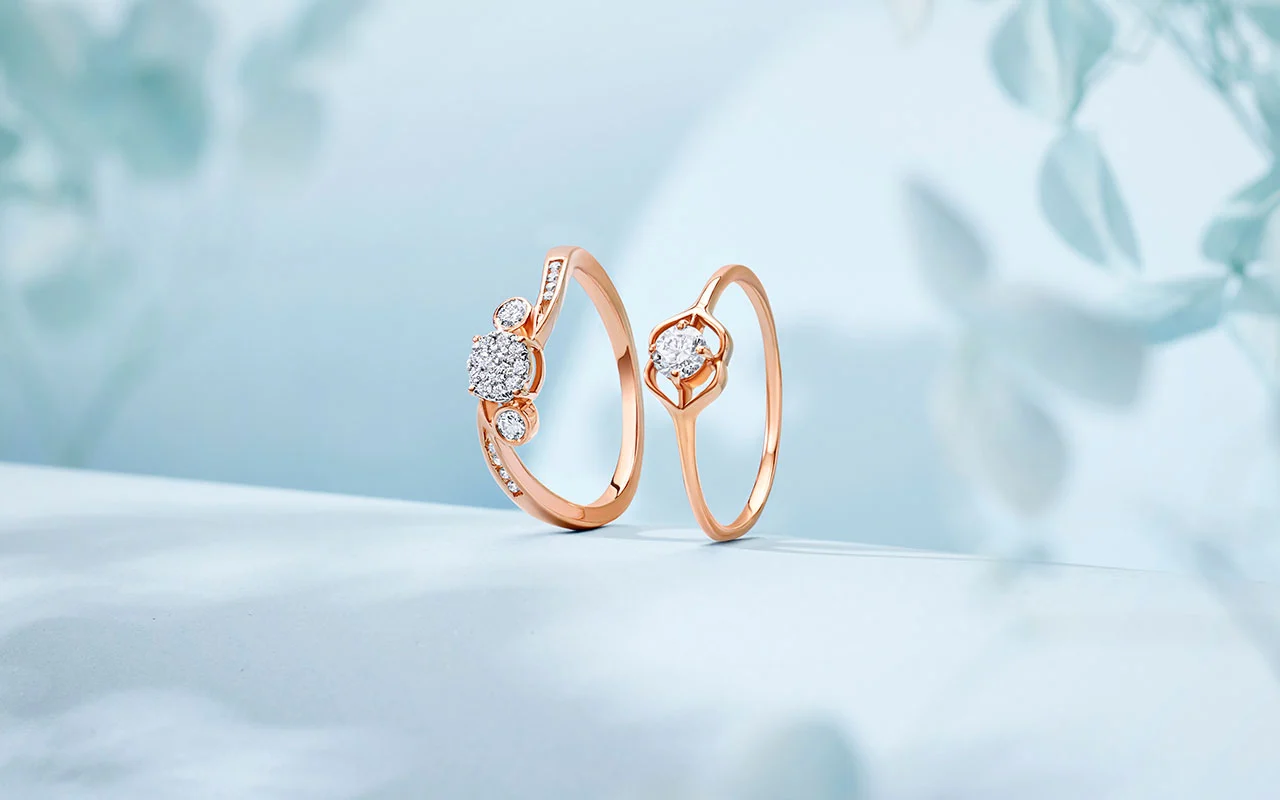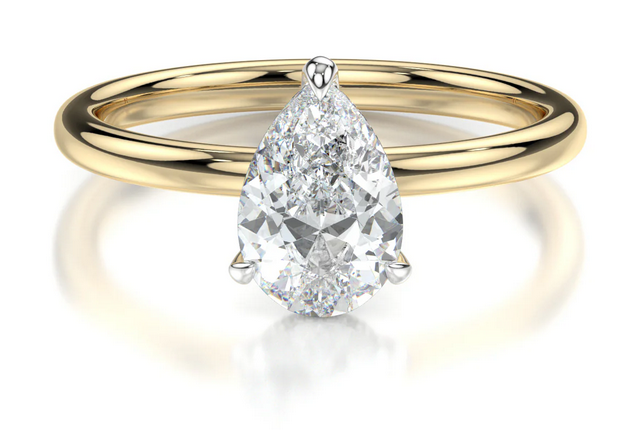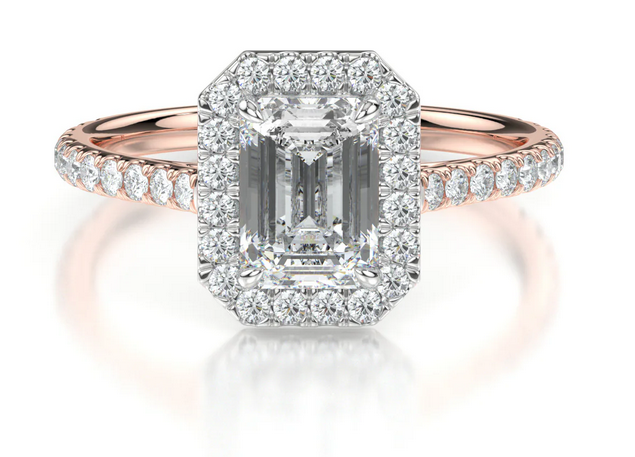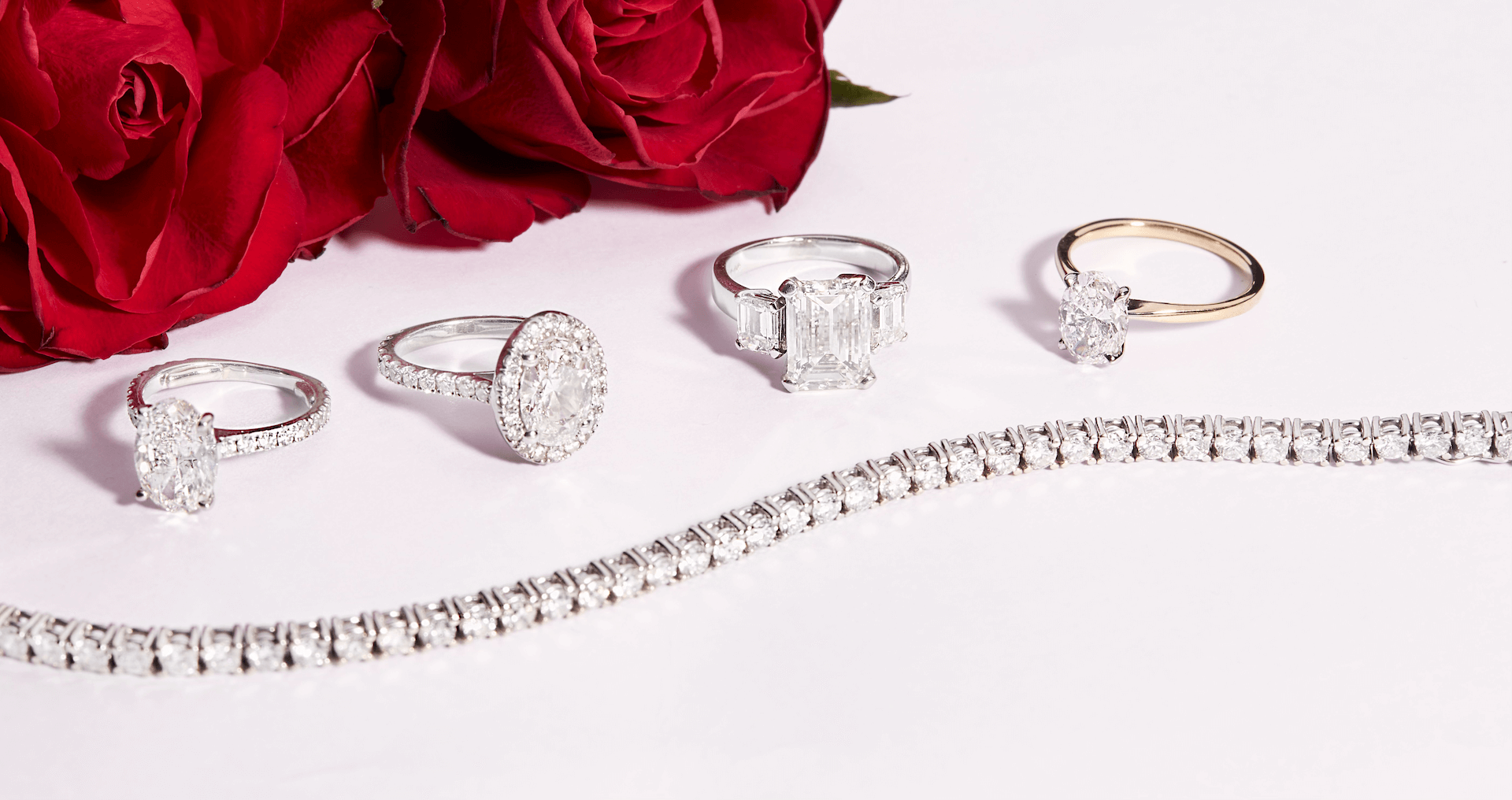Tips for Choosing the Perfect Diamond Engagement Ring

Diamond engagement rings hold a significant place in the celebration of love and commitment. As symbols of eternal devotion, they are cherished for their beauty, brilliance, and timeless elegance. In this detailed guide, we will walk you through the intricate process of selecting the perfect diamond engagement ring, from understanding diamond quality to selecting the right setting and style.
The 4 Cs of Diamond Quality
When selecting a diamond, it's crucial to understand the 4 Cs—Carat, Cut, Color, and Clarity. These factors determine a diamond’s overall beauty and value, helping you make an informed decision.
Carat: Understanding Diamond Weight
Carat refers to the weight of the diamond. A 1-carat diamond weighs approximately 0.2 grams. While carat size influences the price of the ring, it is not the only indicator of a diamond's beauty. Larger diamonds can be stunning, but the quality of the cut often has a more significant impact on the stone's brilliance. Consider balancing carat size with other factors to maximize both size and sparkle.
Cut: The Key to Brilliance
The cut of a diamond determines how well it reflects light. A well-cut diamond captures and returns light beautifully, resulting in its dazzling sparkle. The most common cut is the round brilliant cut, known for its 58 facets that maximize light reflection. Other popular cuts include the princess cut, emerald cut, and oval cut. Be sure to prioritize the cut grade, as it dramatically impacts the diamond's overall appearance.
Color: The Spectrum of Purity
Diamonds are graded on a color scale from D (colorless) to Z (light yellow or brown). Colorless diamonds are the rarest and most valuable. However, diamonds with slight color, typically in the G to J range, can still appear white to the naked eye, offering a great balance of beauty and value. Consider your personal preference and budget when choosing a diamond's color grade.
Clarity: Flawless or Included?
Clarity refers to the presence of internal flaws (inclusions) or surface imperfections (blemishes) in a diamond. The clarity scale ranges from Flawless (FL) to Included (I1, I2, I3). While flawless diamonds are rare, many diamonds with slight inclusions appear perfect to the naked eye. A diamond with VS1 or VS2 clarity offers excellent value, as inclusions are typically invisible without magnification.
Michelle Engagement Ring
Presenting the Michelle Engagement Ring, a masterpiece adorned with 2mm channel set side stones intricately set along the band. All crafted with precision in our Hatton Garden workshop.
Nancy Engagement Ring
Presenting the Nancy engagement ring, a bespoke hidden halo design masterpiece adorned with a delicate 2mm solitaire band. Meticulously crafted with precision in our Hatton Garden workshop, this ring emanates timeless elegance, symbolising enduring love and sophisticated beauty.
Choosing the Right Diamond Shape
The shape of the diamond is a matter of personal style and preference. Here are some of the most popular diamond shapes:
Round Brilliant
The round brilliant is the most classic and popular shape, known for its unmatched sparkle. Its 58 facets are designed to maximize light reflection, making it a timeless choice for engagement rings.
Princess Cut
The princess cut is a modern, square-shaped diamond with pointed corners. It offers a contemporary look while retaining exceptional brilliance, making it a popular choice for those seeking a blend of classic and modern aesthetics.
Cushion Cut
Known for its soft, rounded edges, the cushion cut has a vintage charm. This shape combines a rectangular or square cut with rounded corners, offering a unique blend of softness and sparkle.
Selecting the Perfect Setting
The setting plays a crucial role in enhancing the appearance and security of the diamond. Here are some popular engagement ring settings:
Prong Setting
The prong setting is the most common and classic style. It uses small metal claws to hold the diamond securely in place, allowing maximum light to enter the stone. Prong settings can range from four to six prongs, with fewer prongs allowing for more light and sparkle.
Halo Setting
In a halo setting, smaller diamonds surround the center stone, creating the illusion of a larger diamond. This setting adds extra sparkle and brilliance, making it a popular choice for those looking for maximum shine.
Bezel Setting
The bezel setting encircles the diamond with a thin metal rim, providing excellent protection for the stone. While it may reduce the diamond’s sparkle slightly, it is a great option for those with an active lifestyle who prioritize durability.
Pavé Setting
The pavé setting features small diamonds set closely together along the band, creating a continuous sparkle effect. This setting adds a luxurious, glamorous touch to the ring while enhancing the overall brilliance of the design.
Arlet Engagement Ring
Presenting the Arlet Engagement Ring, a mesmerising halo masterpiece adorned with a delicate 2mm diamond band. Meticulously crafted with precision in our Hatton Garden workshop, this ring emanates timeless elegance, symbolising enduring love and sophisticated beauty.
Metals for Engagement Rings
The choice of metal is equally important in the design of an engagement ring. The metal affects the ring’s appearance, durability, and how it complements the diamond.
Platinum
Platinum is a rare and durable metal, known for its strength and resistance to tarnish. Its naturally white color complements the brilliance of diamonds, making it a popular choice for engagement rings. Although more expensive than other metals, its durability makes it ideal for those seeking a long-lasting option.
White Gold
White gold is an affordable alternative to platinum. It is a mixture of pure gold and white metals like nickel or palladium, giving it a sleek, silver appearance. White gold is typically coated with a layer of rhodium to enhance its shine and protect it from scratches.
Yellow Gold
For a classic and timeless look, yellow gold is a perfect choice. Its warm hue contrasts beautifully with the diamond’s brilliance, offering a traditional and elegant style. Yellow gold is available in various purity levels, with 18K and 14K being the most common.
Rose Gold
Rose gold has gained popularity in recent years due to its unique pink hue. This metal combines gold with copper, resulting in a warm and romantic appearance. Its vintage charm makes it a great option for those seeking something unconventional yet elegant.
Personalizing Your Engagement Ring
Adding personal touches to your engagement ring can make it even more special. Consider these ideas to personalize your ring:
Engraving
Add a meaningful message or date inside the band to commemorate your relationship. Engraving is a timeless way to add sentimental value to the ring.
Custom Designs
Working with a jeweler to create a custom design allows you to choose every aspect of the ring, from the diamond shape to the setting and band style. This ensures your engagement ring is a one-of-a-kind piece that perfectly reflects your love story.
Adding Colored Gemstones
Incorporating colored gemstones like sapphires or emeralds into your engagement ring adds a vibrant and unique twist. Whether as accent stones or the main feature, colored gemstones can create a striking and personalized design.
Budgeting for Your Diamond Engagement Ring
Setting a realistic budget is essential when shopping for an engagement ring. While tradition suggests spending two to three months' salary, the most important factor is choosing a ring that aligns with your financial situation and values. By carefully balancing the 4 Cs, metal choice, and setting, you can find a stunning ring that fits within your budget.
Consider Ethical Sourcing
In recent years, many couples have prioritized ethically sourced diamonds to ensure their purchase does not contribute to harmful mining practices. Consider looking for diamonds certified as conflict-free by organizations like the Kimberly Process. Additionally, lab-grown diamonds offer a sustainable and affordable alternative without compromising on quality or beauty.
Finding the Perfect Diamond Engagement Ring
Choosing the perfect diamond engagement ring involves balancing personal style, quality, and budget. By understanding the 4 Cs, selecting the ideal setting, and considering various metal options, you can find a ring that symbolizes your love and commitment beautifully. Whether you opt for a classic design or a custom creation, your engagement ring should be a reflection of your unique relationship.
- Industry
- Art
- Causes
- Crafts
- Dance
- Drinks
- Film
- Fitness
- Food
- Spiele
- Gardening
- Health
- Home
- Literature
- Music
- Networking
- Other
- Party
- Religion
- Shopping
- Sports
- Theater
- Wellness
- News






